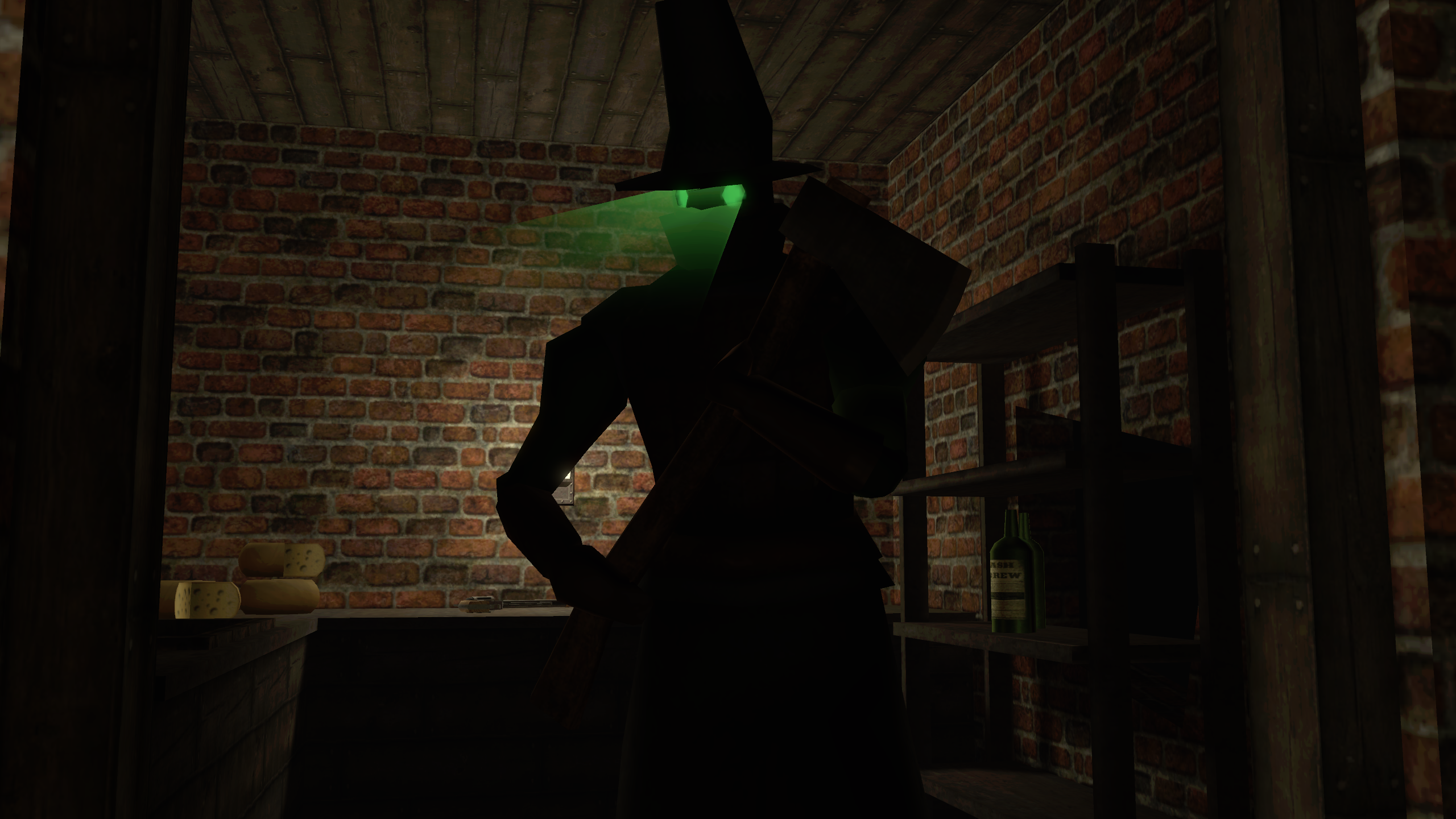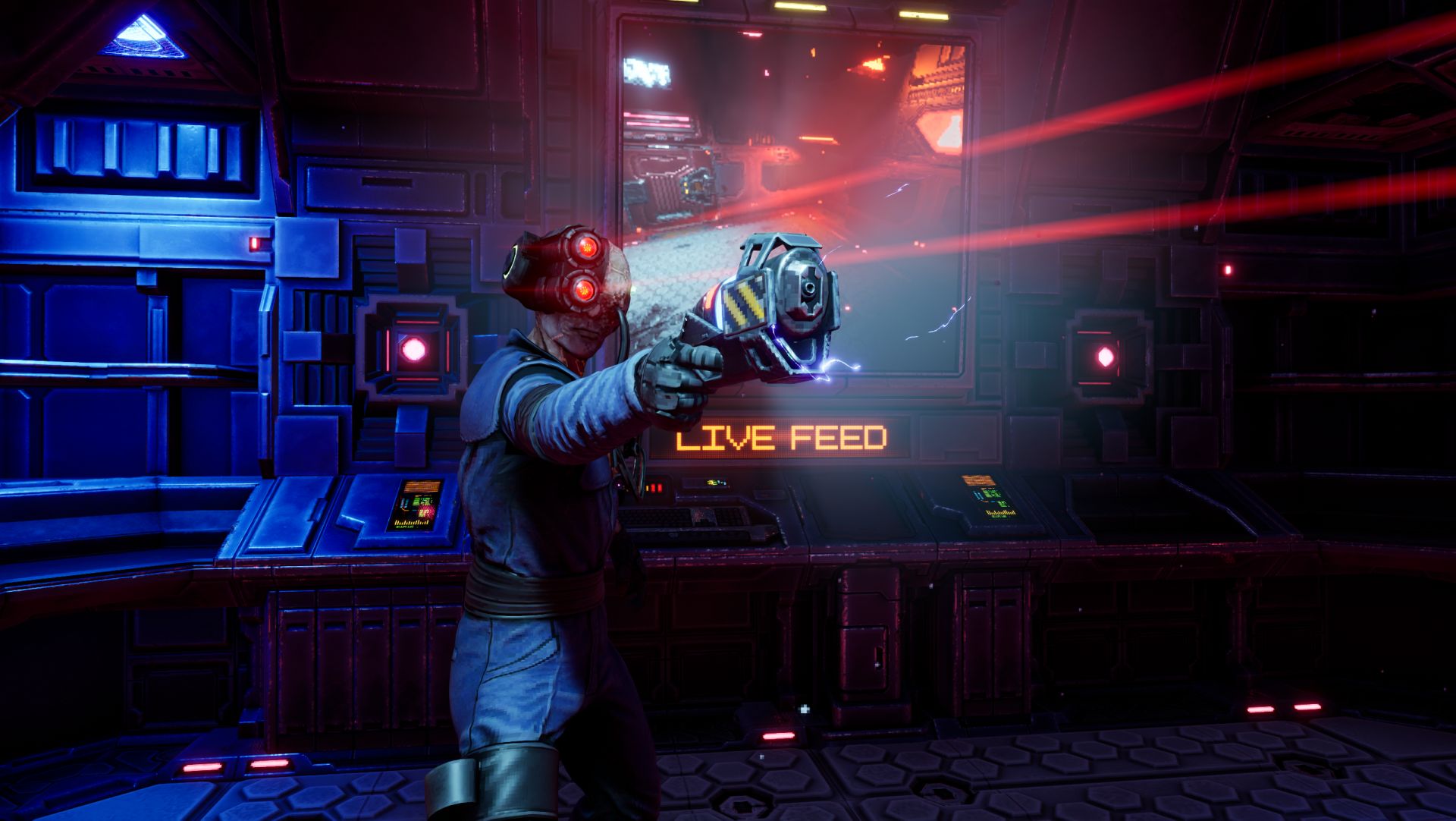The immersive sim is finally breaking free from its roots
For a genre that once risked slipping into obscurity, the immersive sim hasn’t had a bad run. It’s been kept afloat for the last decade by developers mining its roots, producing plenty of PC gaming favourites. Arkane’s Dishonored took the eerie stealth of Thief and added a dose of industrialisation, Prey mixed System Shock 2’s sci-fi horror with a gallon of GLOO, and Eidos Montreal’s Deus Ex reboots revived the genre’s superhuman poster child.
There have been innovations, but most of the immersive sims that have appeared over the last 10 years have stuck to the model of the genre’s architects. That’s changing. Now they’re going boldly where no cybernetically enhanced human has gone before. Take a look at the last year and what’s coming down the line, and it’s clear we’re at a fork in the road. The genre has never looked so varied, or so open to experimentation.
We should’ve known something was up when Deathloop appeared last year. Mixing open-ended levels and sandbox combat with a semi-roguelite structure, Arkane’s latest game took all the essential features of an immersive sim and wrapped them in a more palatable package. It was a bid for the mainstream, not to mention a big change for its developer. Here was the studio that had been largely responsible for keeping the genre alive, now happily diverting from its typical form.
A few months later, Weird West showed us just how far that diversion could be taken. The supernatural Western ditched the immersive sim’s first-person perspective—once seen as vital to a genre with an emphasis on creating believable worlds—for third-person twin-stick shooting. Gloomwood, meanwhile, introduced elements of survival horror with a thick, gothic vibe that called to mind Bloodborne. It harks back to the body horror of System Shock 2 and the stealth of Thief, but ups the ante with a brutality previous immersive sims have strayed away from.
Widen the net further and you’ll see how many other games this year have tucked into the immersive sim buffet. Sniper Elite 5’s multi-path maps are stuffed with optional routes to explore, and its post-mission lethality reports hint at more than a fleeting influence from Dishonored. Even something as foreign as voxel-smasher Teardown seems to have caught the imsim bug. Its sandbox heists, which dump you in a destructible scenario with an array of equally destructive tools, are breeding grounds for experimentation and emergent gameplay.
This isn’t just a temporary blip in the genre’s evolution, either. Arkane’s next release, Redfall, is an online co-op shooter about hunting psychic vampires. Multiplayer seems like an odd fit for a genre that focuses on empowering players to choreograph their own experiences and tell individual stories. But Arkane says (opens in new tab) Redfall will continue its “legacy of carefully crafted worlds and immersive sims” by adapting, rather than replacing, the studio’s “signature gameplay”. From what we’ve so far, that means lots of opportunities for stealth and multiple ways of approaching combat.
Even Warren Spector, who had a hand in several of the earliest immersive sim hits, is trying to regenerate the genre he grandfathered. We don’t know much about his next game, Argos: Riders on the Storm, other than it will also focus on multiplayer, but his involvement counts for more than you might think. Spector moved on from immersive sims more than a decade ago to make the Epic Mickey series for Nintendo Wii, and even after a disappointing initial comeback with 2018’s Ultima: Underworld Ascendant, his legacy still looms large.
Shaken, not stirred
It’s not just the well-known names shaking things up. A quick browse through Steam or the small but dedicated immersive sim subreddit will show you just how many smaller devs are getting in on their favourite genre. Among the more novel of them is Fallen Aces, a stealthy noir thriller that’ll roll up non-linear levels with hand-drawn, comic book illustrations. Think campy Sin City, but with less monochrome colour palettes and more tongue-in-cheek gangster catchphrases.
Not that it’s all change. Many immersive sim fans will have their eyes set on next year’s System Shock remake, hoping it breathes new life into the sci-fi cult classic. It’ll offer older players the chance to relive the game’s rose-tinted glory, and hopefully attract new players who would otherwise never set foot on Citadel Station. As the blocky graphics and dated controls of old immersive sims become off-putting, remakes like this could do for the genre what the Resident Evil remakes did for that series—bringing formerly inaccessible classics to a new generation.
It’s not surprising that immersive sims are pulling away from their roots. The genre’s always had a habit of branching out and spilling over into others, even when its big hitters don’t find major commercial success, or are left flagging after years of inactivity. For every Dishonored or BioShock that comes out to put the immersive sim back on the PC gaming map, there are heaps of other games that look a whole lot like imsims, and share plenty of their standout features, but don’t quite belong to the genre.
You could be tempted to call Divinity: Original Sin 2 an immersive sim for its scope of player agency, but it’s usually classed as a CRPG. Hitman’s omission from the genre’s history books similarly seems wrong now that Weird West has shaken off its FPS shackles. But should Agent 47 rub shoulders with Adam Jensen? IO Interactive’s next game, Project 007, is an enigma right now, but it too could sit at that intersection of social stealth and immersive sim.
I’m not convinced it really matters. What’s exciting is how the spirit of the immersive sim is being carried forward—twisted and morphed to challenge what games can be and how they might play. Taking a genre and letting developers modify it to their own liking to find new ideas and designs? Now that’s the kind of augmentation to make JC Denton smile.
For a genre that once risked slipping into obscurity, the immersive sim hasn’t had a bad run. It’s been kept afloat for the last decade by developers mining its roots, producing plenty of PC gaming favourites. Arkane’s Dishonored took the eerie stealth of Thief and added a dose of industrialisation, Prey mixed System Shock 2’s sci-fi horror with a gallon of GLOO, and Eidos Montreal’s Deus Ex reboots revived the genre’s superhuman poster child.
There have been innovations, but most of the immersive sims that have appeared over the last 10 years have stuck to the model of the genre’s architects. That’s changing. Now they’re going boldly where no cybernetically enhanced human has gone before. Take a look at the last year and what’s coming down the line, and it’s clear we’re at a fork in the road. The genre has never looked so varied, or so open to experimentation.
We should’ve known something was up when Deathloop appeared last year. Mixing open-ended levels and sandbox combat with a semi-roguelite structure, Arkane’s latest game took all the essential features of an immersive sim and wrapped them in a more palatable package. It was a bid for the mainstream, not to mention a big change for its developer. Here was the studio that had been largely responsible for keeping the genre alive, now happily diverting from its typical form.
A few months later, Weird West showed us just how far that diversion could be taken. The supernatural Western ditched the immersive sim’s first-person perspective—once seen as vital to a genre with an emphasis on creating believable worlds—for third-person twin-stick shooting. Gloomwood, meanwhile, introduced elements of survival horror with a thick, gothic vibe that called to mind Bloodborne. It harks back to the body horror of System Shock 2 and the stealth of Thief, but ups the ante with a brutality previous immersive sims have strayed away from.
Widen the net further and you’ll see how many other games this year have tucked into the immersive sim buffet. Sniper Elite 5’s multi-path maps are stuffed with optional routes to explore, and its post-mission lethality reports hint at more than a fleeting influence from Dishonored. Even something as foreign as voxel-smasher Teardown seems to have caught the imsim bug. Its sandbox heists, which dump you in a destructible scenario with an array of equally destructive tools, are breeding grounds for experimentation and emergent gameplay.
This isn’t just a temporary blip in the genre’s evolution, either. Arkane’s next release, Redfall, is an online co-op shooter about hunting psychic vampires. Multiplayer seems like an odd fit for a genre that focuses on empowering players to choreograph their own experiences and tell individual stories. But Arkane says (opens in new tab) Redfall will continue its “legacy of carefully crafted worlds and immersive sims” by adapting, rather than replacing, the studio’s “signature gameplay”. From what we’ve so far, that means lots of opportunities for stealth and multiple ways of approaching combat.
Even Warren Spector, who had a hand in several of the earliest immersive sim hits, is trying to regenerate the genre he grandfathered. We don’t know much about his next game, Argos: Riders on the Storm, other than it will also focus on multiplayer, but his involvement counts for more than you might think. Spector moved on from immersive sims more than a decade ago to make the Epic Mickey series for Nintendo Wii, and even after a disappointing initial comeback with 2018’s Ultima: Underworld Ascendant, his legacy still looms large.
Shaken, not stirred
It’s not just the well-known names shaking things up. A quick browse through Steam or the small but dedicated immersive sim subreddit will show you just how many smaller devs are getting in on their favourite genre. Among the more novel of them is Fallen Aces, a stealthy noir thriller that’ll roll up non-linear levels with hand-drawn, comic book illustrations. Think campy Sin City, but with less monochrome colour palettes and more tongue-in-cheek gangster catchphrases.
Not that it’s all change. Many immersive sim fans will have their eyes set on next year’s System Shock remake, hoping it breathes new life into the sci-fi cult classic. It’ll offer older players the chance to relive the game’s rose-tinted glory, and hopefully attract new players who would otherwise never set foot on Citadel Station. As the blocky graphics and dated controls of old immersive sims become off-putting, remakes like this could do for the genre what the Resident Evil remakes did for that series—bringing formerly inaccessible classics to a new generation.
It’s not surprising that immersive sims are pulling away from their roots. The genre’s always had a habit of branching out and spilling over into others, even when its big hitters don’t find major commercial success, or are left flagging after years of inactivity. For every Dishonored or BioShock that comes out to put the immersive sim back on the PC gaming map, there are heaps of other games that look a whole lot like imsims, and share plenty of their standout features, but don’t quite belong to the genre.
You could be tempted to call Divinity: Original Sin 2 an immersive sim for its scope of player agency, but it’s usually classed as a CRPG. Hitman’s omission from the genre’s history books similarly seems wrong now that Weird West has shaken off its FPS shackles. But should Agent 47 rub shoulders with Adam Jensen? IO Interactive’s next game, Project 007, is an enigma right now, but it too could sit at that intersection of social stealth and immersive sim.
I’m not convinced it really matters. What’s exciting is how the spirit of the immersive sim is being carried forward—twisted and morphed to challenge what games can be and how they might play. Taking a genre and letting developers modify it to their own liking to find new ideas and designs? Now that’s the kind of augmentation to make JC Denton smile.




